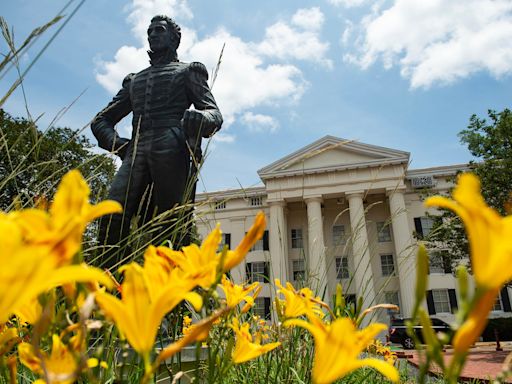Search results
Jackson cut loose from Burr in time to avoid imputations of treason, but he was still eager for the field. With mounting outrage he watched the inept efforts of Presidents Jefferson and Madison to win redress from Great Britain for its violations of American sovereignty and interests.
- Life in Brief
He became a democratic symbol and founder of the Democratic...
- Life After The Presidency
Gradually the weight of age and illness bore down on...
- Domestic Affairs
The nomination came before the Senate, where Vice-President...
- Campaigns and Elections
Jackson again carried Pennsylvania, New York, and nearly the...
- Impact and Legacy
Andrew Jackson left a permanent imprint upon American...
- Family Life
One of these young men, Andrew Jackson Donelson, went to...
- Life in Brief
People also ask
What did Andrew Jackson do before he became president?
How did Andrew Jackson change the United States?
What did Jackson do during his presidency?
Why was Andrew Jackson important?
Andrew Jackson (March 15, 1767 – June 8, 1845) was an American lawyer, planter, general, and statesman who served as the seventh president of the United States from 1829 to 1837. Before his presidency, he gained fame as a general in the U.S. Army and served in both houses of the U.S. Congress.
- Mississippi Free Press
Fate of Capital City’s Andrew Jackson Statue Still Undecided
JACKSON, Miss.—Andrew Jackson still stands outside City Hall in Jackson, Miss., nearly four years after the City Council officials decided to remove the statue dedicated to the slave-owning ...
1 day ago
- Gannett via Yahoo
Jackson council voted to remove the Andrew Jackson statue in 2020. Why is it still standing?
Back in 2020, the Jackson City Council voted to remove the statue of seventh president Andrew Jackson outside of City Hall. Yet it still stands. The seventh president is a controversial figure ...
5 days ago
- Andrew Jackson's Early Life
- Andrew Jackson's Military Career
- Andrew Jackson in The White House
- Bank of The United States and Crisis in South Carolina
- Andrew Jackson's Legacy
Andrew Jackson was born on March 15, 1767, in the Waxhaws region on the border of North and South Carolina. The exact location of his birth is uncertain, and both states have claimed him as a native son; Jackson himself maintained he was from South Carolina. The son of Irish immigrants, Jackson received little formal schooling. The British invaded ...
Andrew Jackson, who served as a major general in the War of 1812, commanded U.S. forces in a five-month campaign against the Creek Indians, allies of the British. After that campaign ended in a decisive American victory in the Battle of Tohopeka (or Horseshoe Bend) in Alabama in mid-1814, Jackson led American forces to victory over the British in t...
Andrew Jackson won redemption four years later in an election that was characterized to an unusual degree by negative personal attacks. Jackson and his wife were accused of adultery on the basis that Rachel had not been legally divorced from her first husband when she married Jackson. Shortly after his victory in 1828, the shy and pious Rachel Jack...
A major battle between the two emerging political parties involved the Bank of the United States, the charter of which was due to expire in 1832. Andrew Jackson and his supporters opposed the bank, seeing it as a privileged institution and the enemy of the common people; meanwhile, Clay and Webster led the argument in Congress for its recharter. In...
In contrast to his strong stand against South Carolina, Andrew Jackson took no action after Georgia claimed millions of acres of land that had been guaranteed to the Cherokee Indians under federal law, and he declined to enforce a U.S. Supreme Court ruling that Georgia had no authority over Native American tribal lands. In 1835, the Cherokees signe...
Andrew Jackson was the seventh President of the United States from 1829 to 1837, seeking to act as the direct representative of the common man. More nearly than any of his predecessors, Andrew ...
He ran for president in 1824 and again in 1828, and he became president in 1829. He served two terms, left the White House in 1837, and died eight years later, in his native South. Jackson’s presidency was viewed favourably by Americans and American historians for generations.
Andrew Jackson was the president for the "common man." Under his rule, American democracy flourished as never before -- but the economy and the Native American population suffered at his hands.
Apr 3, 2014 · After becoming president, Jackson did not submit to Congress in policy-making and was the first president to assume command with his veto power. While prior presidents rejected only bills they ...

